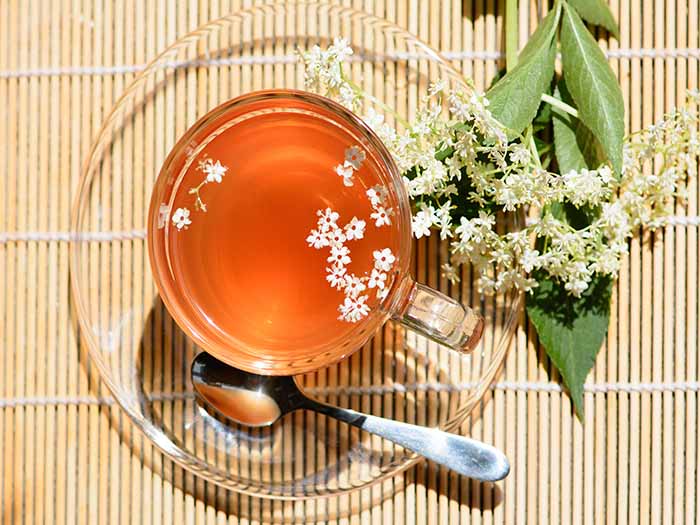Elderflower is a popular addition to certain foods and beverages. It also has a long history as an ingredient in traditional medicine.
What is Elderflower?
Elderflower is a product of the flowering plant Elder, also known as Sambucus. The Elder plant leaves, seeds, and twigs are potentially toxic, but the flowers and berries can be used in herbal medicine for treating a variety of ailments. Raw elderflower berries are toxic and must be cooked before consuming. This plant is also used in different types of alcoholic beverages, from St. Germain liquor to elderflower wine. This flavor is often compared to honey, with a strong floral taste. [1] [2]
Benefits of Elderflower
The many amazing benefits of elderflower include the following: [3]
- It has antiseptic and anti-inflammatory properties
- It aids in treating constipation
- It treats nasal swelling caused by sinus infection, bronchitis, flu, cold, swine flu, and allergies
- It has been shown to be effective in killing many pathogens, including the MRSA virus
- It regulates the symptoms of diabetes [4]
- It reduces high cholesterol
- It alleviates respiratory disorders
- It acts as a diuretic that enables removal of toxins from the body
- It is also commonly used as a diaphoretic to promote sweating
- It is often applied to help reduce the inflammation caused by arthritis
- Phytoestrogen extracts from Elderflower may aid in fighting against breast cancer [5]

Fragrant elderflower tea. Photo Credit: Shutterstock
Elderflower vs Elderberry
Origin & Usage
Elderflowers and elderberries both come from the same plant and are both known for their use in traditional medicines.
Benefits
- Elderberries: The berries are usually cooked into a dark syrup that can be consumed to boost the immune system during cold and flu season. [6]
- Elderflowers: The flowers help reduce nasal inflammation and are most effective when you are already sick.
How to Use?
This powerful substance is available in many different forms. For medicinal use, it is available as the following:
- Tea
- Oil
- Tincture
- Liquor
- Sweet floral syrup
Side Effects
There are a few side effects of this tea, they include the following:
- Stomach upset: Excess use of this herb can be potentially toxic. Many parts of the plant can cause diarrhea and vomiting.
- Pregnancy or breastfeeding: It is not recommended to use this herbal remedy if you are pregnant or breastfeeding.
- Blood Clotting: Stop using this herb two weeks prior to any scheduled surgery, as it can lower your body’s clotting ability.
